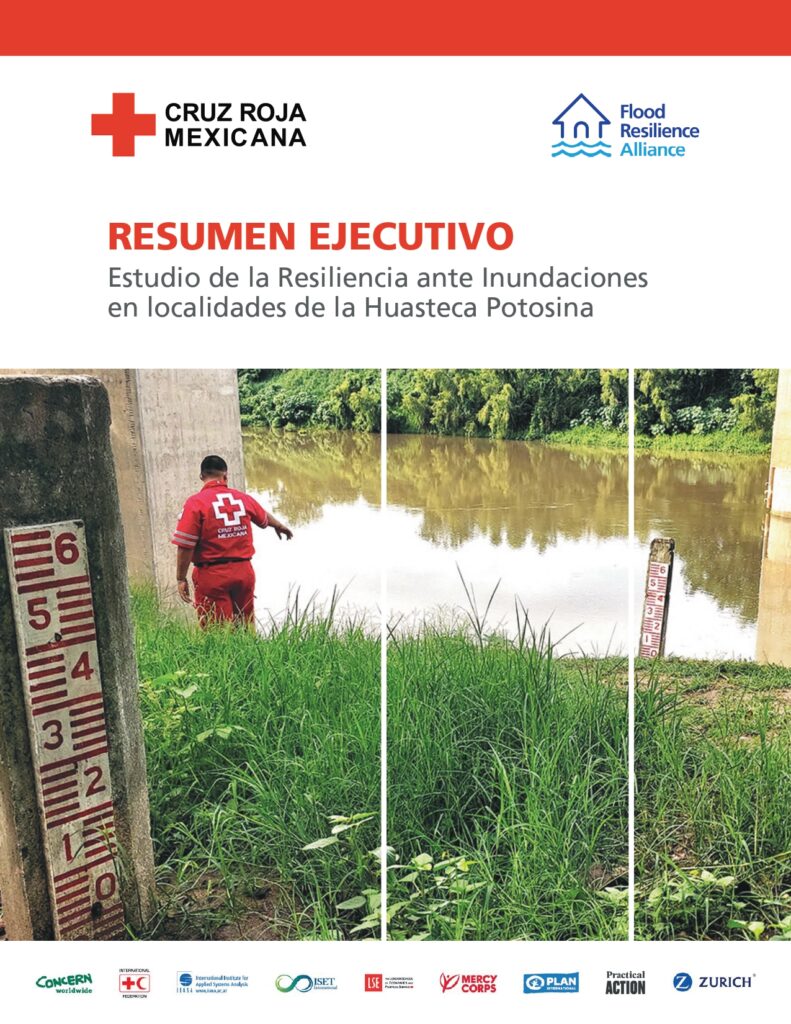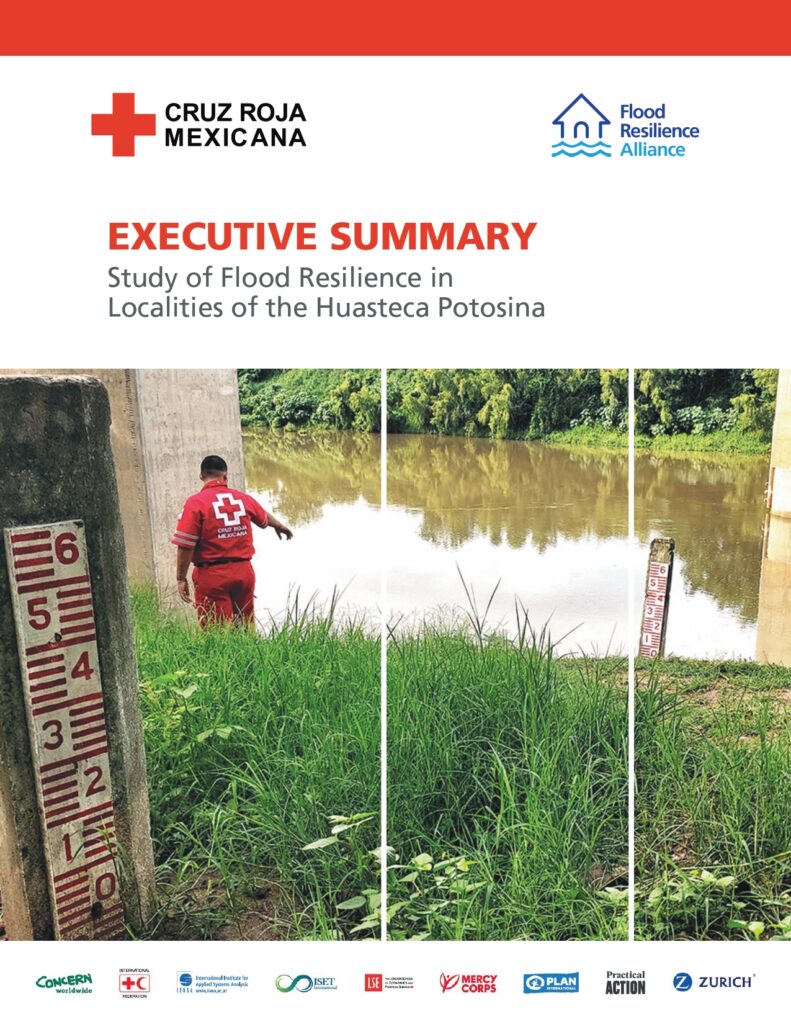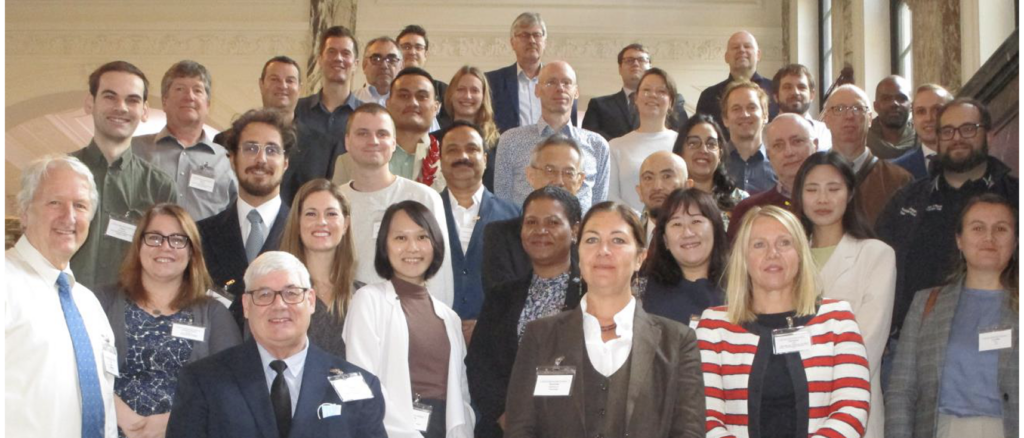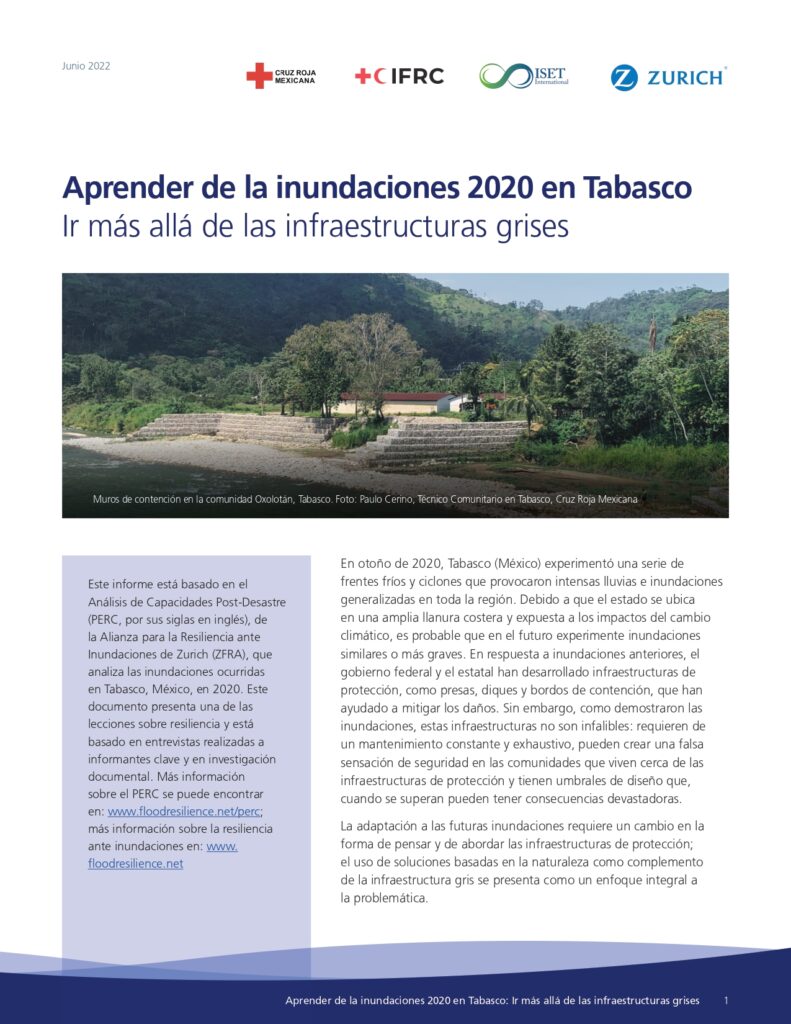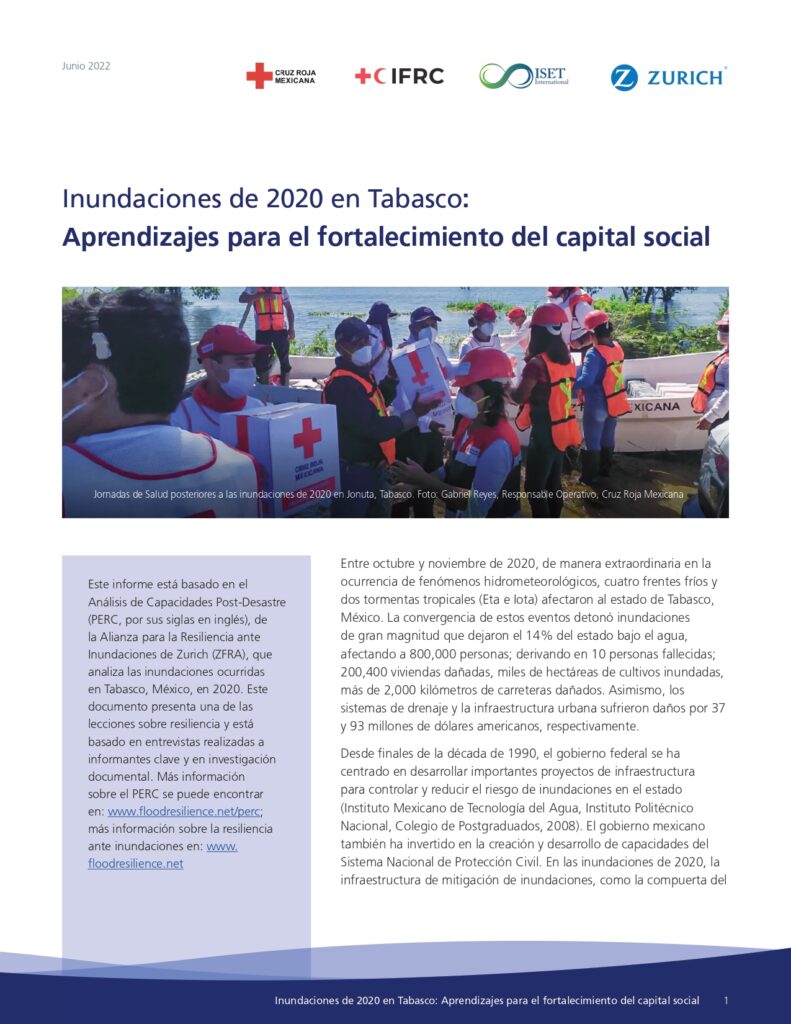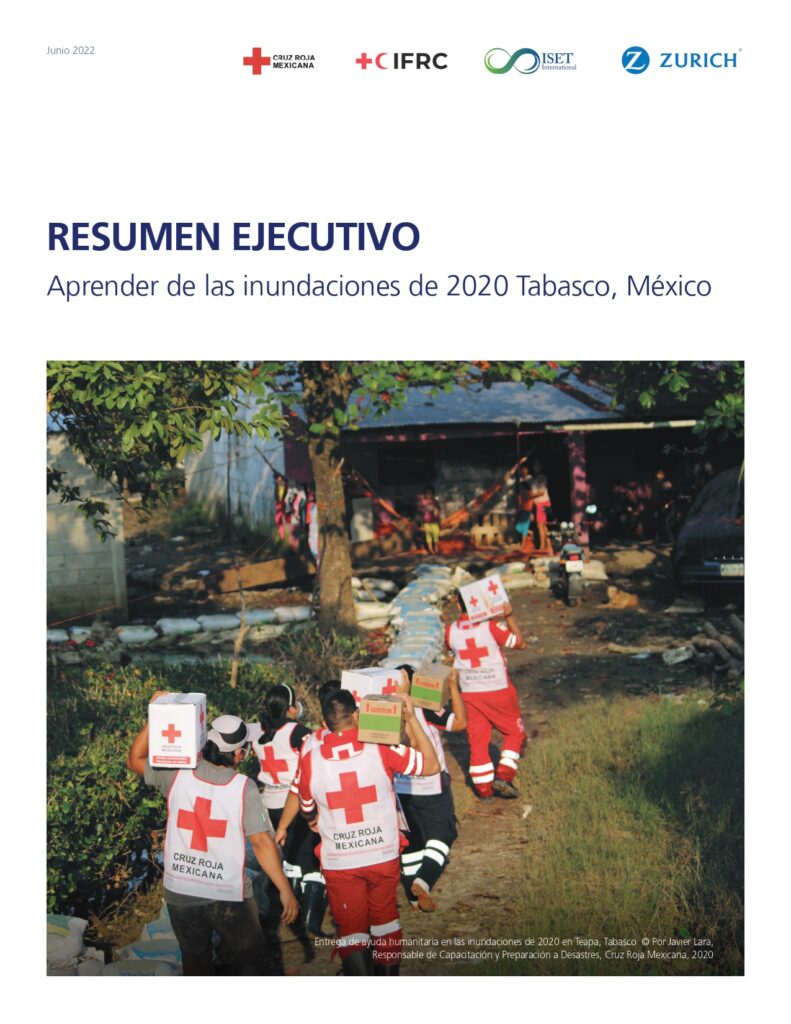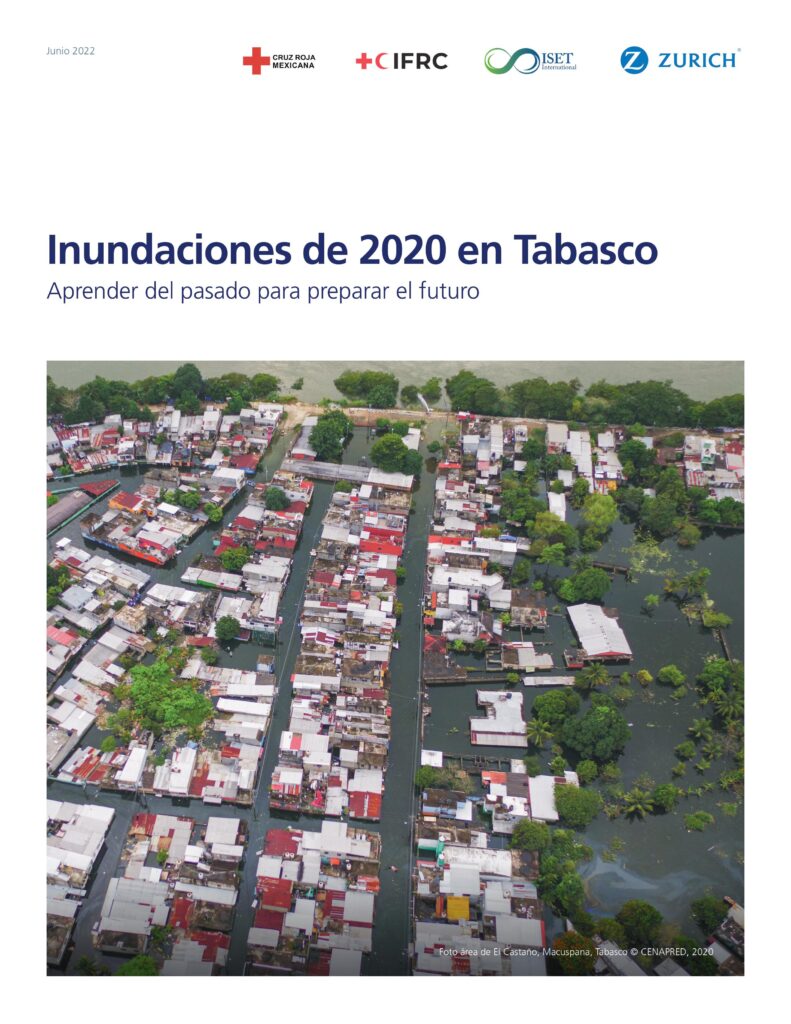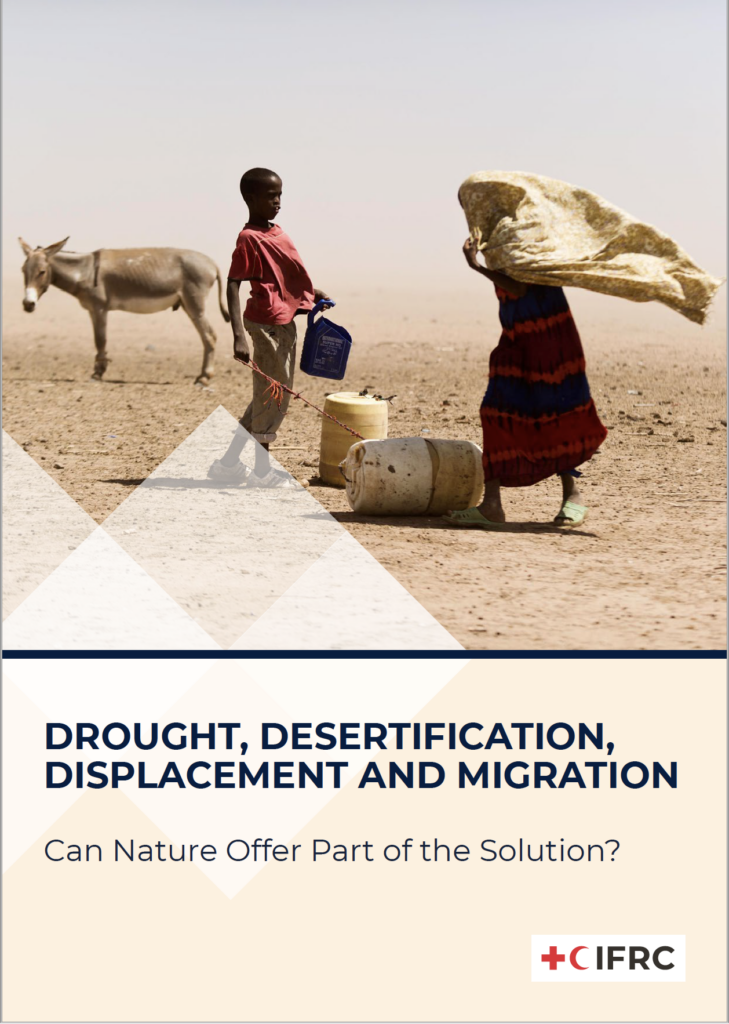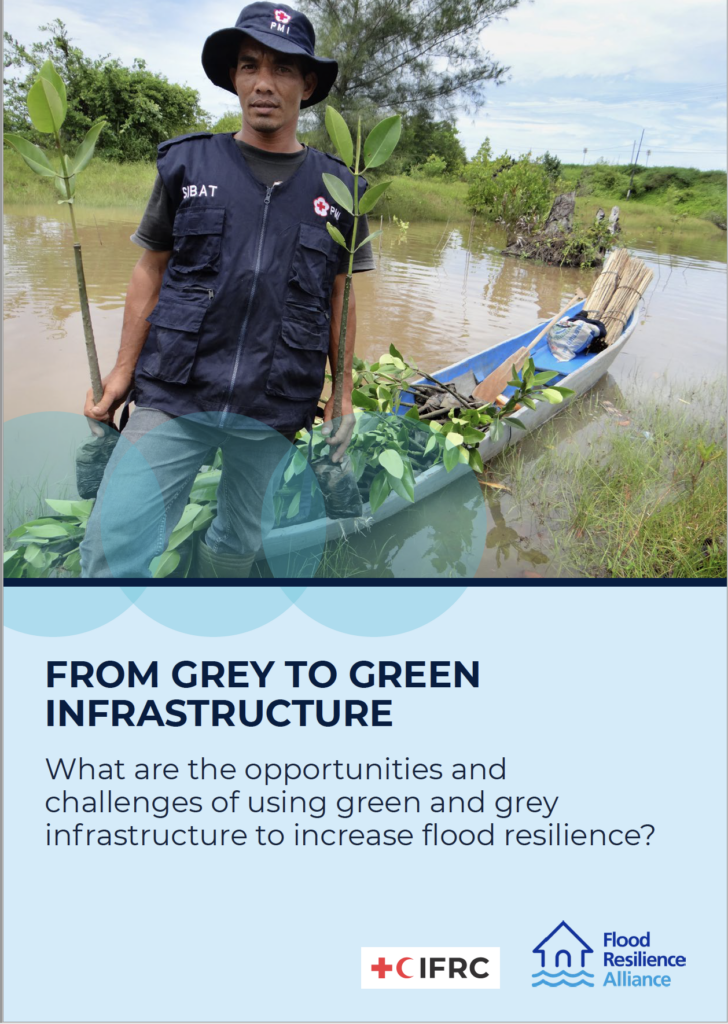Resumen Ejecutivo: Estudio de la Resiliencia ante Inundaciones en localidades de la Huasteca Potosina
En este documento se comparten los puntos clave del análisis de la medición de la resiliencia ante inundaciones y se presentan cuatro líneas prioritarias para el fortalecimiento y la participación de diversas instituciones, grupos e individuos en la gestión del riesgo de desastres en San Luis Potosí en México. El estudio está basado en el […]

